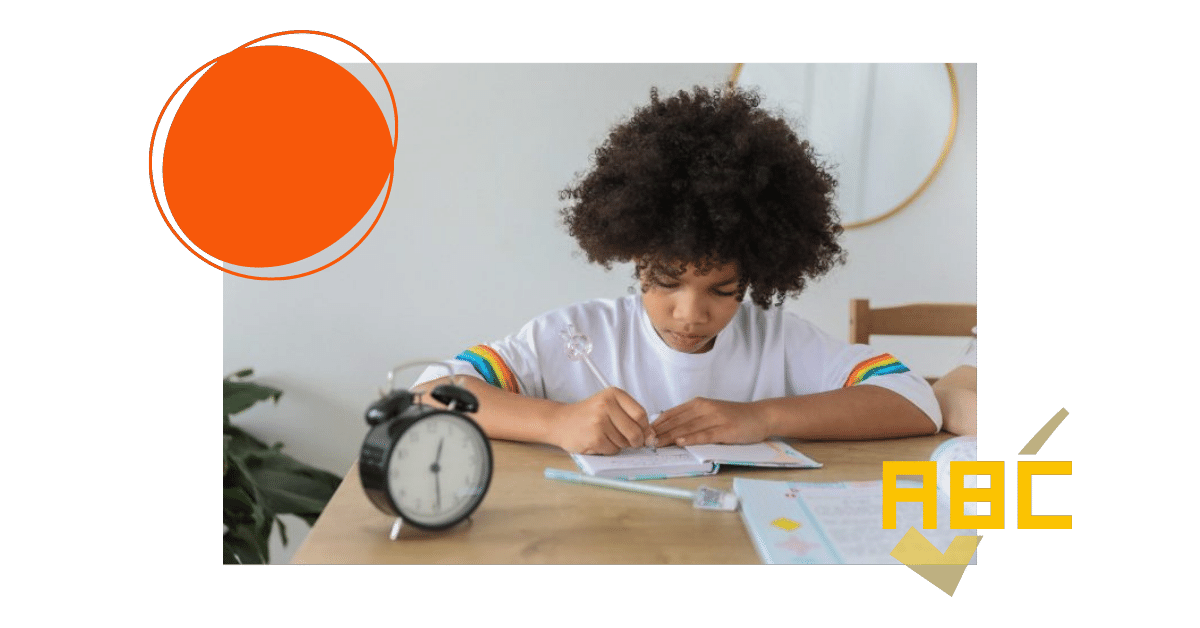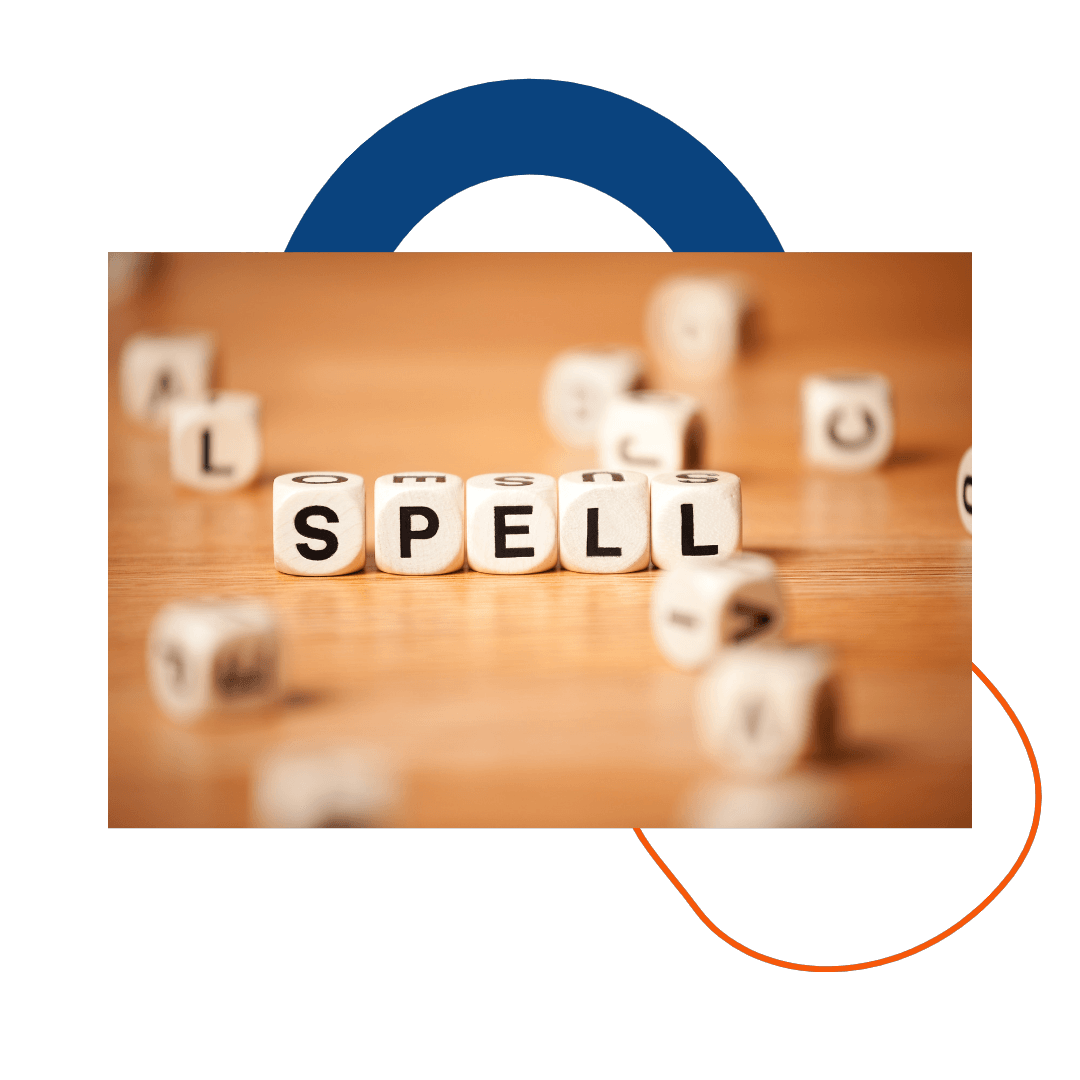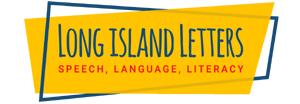LONG ISLAND SPELLING ENCODING TUTORING
LONG ISLAND SPELLING ENCODING TUTORING

Our Spelling Encoding Tutors Come to Your Long Island Home! | Best In-Person 1:1 Spelling Encoding Tutoring | Free Consultation and Meet & Greets With Our Staff
Our Spelling Encoding Tutors Come to Your Long Island Home! | Best In-Person 1:1 Spelling Encoding Tutoring | Free Consultation and Meet & Greets With Our Staff
LONG ISLAND NEIGHBORHOODS
We also travel to Hamptons (summer speech language therapy)
We also travel to Hamptons (summer speech language therapy)
Literacy Specialists
We travel to you and we also offer remote services. Our Literacy Specialists work on decoding, encoding (spelling), reading comprehension, and writing skills.
Literacy Specialists
We travel to you and we also offer remote services. Our Literacy Specialists work on decoding, encoding (spelling), reading comprehension, and writing skills.
Common Core English Language Arts (ELA) Standards & Worksheets
Common Core English Language Arts (ELA) Standards & Worksheets
TESTIMONIALS
Even though we live in the age of spelling software and autocorrection, spelling remains a crucial part of communication. In young children, spelling—along with reading, comprehension, and writing—is one of the fundamental skills in literacy development.
When a student has difficulty with spelling, it leads to problems expressing thoughts and ideas through writing. Without intervention, it could persist and negatively affect the child’s academic performance. In later life, poor spelling skills could interfere with one’s ability to communicate effectively both in his or her personal life and career. Dyslexic individuals often have trouble spelling, even with common words. Read this article to learn more about dyslexia, recognize the signs, impact, support, and accommodations, how to identify the indicators, and get a diagnosis, post-diagnosis steps, approaches, assistance, how to boost self-worth, and many more!
Learn the relationship between early spelling and decoding. Discover why spelling evaluation is important and how it can help you improve your writing.
Importance of Spelling Skills
For toddlers and young children, communication begins with gestures, body language, and vocalizations. Over time, this progresses to verbal communication as children learn to get a better understanding of language.
As children develop literacy skills, they make connections between verbal and written expression. They learn fundamental skills for effective writing, like identifying letters by sight and associating written patterns with sounds. These skills are explicitly taught and need consistent formal instruction.
According to research, spelling is crucial in developing and improving one’s reading ability. Good spelling skills help a learner master the alphabetic system as it applies to reading. Not to mention, the ability to see the connection between words of the same origin and understand word relationships is essential in comprehension. Along with strong vocabulary knowledge, a child equipped with an understanding of letters and word patterns can tackle and comprehend more complex texts.
Common Spelling Mistakes and Difficulties
Spelling can be a struggle for many students, particularly for those with learning disabilities or communication disorders. To ensure that a child becomes a competent speller, teachers and tutors must first identify the student’s specific area of struggle.
Some of the most common spelling difficulties are:
- Trouble remembering letters in a word one can read easily – Instead of actually reading the word, a student may be “slighting” some letters and relying on the initial letter and context.
- Struggles to figure out possible spellings of words one can say – A child may have difficulties recognizing separate phonemes or may not have knowledge of letter-sound correspondences.
- Guessing unfamiliar words based on context clues and reading some letters.
- Representing a few sounds correctly when writing but skips other sounds or adds extra letters unrelated to sounds in the word.
These difficulties typically manifest in spelling mistakes, such as the following:
- Using the wrong consonant or vowel (for example, kap instead of cap or boll instead of ball)
- Leaving out consonants or vowels (tiking instead of ticking and grat instead of great)
- Dropping one consonant when it should be doubled (barel instead of barrel)
- Struggling to remember when an “e” should be dropped (hikeing instead of hiking) or kept as a silent letter (hik instead of hike)
- Reversing the order of letters (mial instead of mail)
- Writing -ys in plural words instead of -ies (berrys instead of berries)
- Spelling words phonetically instead of using a suffix (attenshin instead of attention)
- Interchanging the use of s and c (absense instead of absence or cleance instead of cleanse)
- Forgetting basic spelling rules such as “i before e except after c” (decieve instead of deceive)
Spelling Worksheets
Spelling Skills
(Here is a list of all the spelling skills organized by k-12 grades!)

How to Improve Spelling Skills
A child begins to master the spelling of certain words when he has committed to memory the connection between its letters and phonemes. Phonemes are the distinct sounds we hear when a word is spoken.
In the English language, memorization is key because of the irregularities in English spelling. Such irregularities can be particularly tricky for young learners, even more so for children with learning disabilities.
Some strategies that parents or teachers can use to help a student remember irregular or longer words are:
- Allow the child to pronounce each syllable in a word to let them hear more of the sounds.
- Take note of unexpected letters and help the child store it in his or her memory by singling out and discussing the letter.
- Point out letter patterns in words to help the student spot irregularities and improve memory.
When it comes to improving a child’s spelling skills, research-based strategies must be implemented. These include:
- Teaching phonemic awareness to help students understand letter-sound correspondence as well as the parts of a word
- The whole-word approach or memorizing the spelling of a word without breaking it down into individual parts
- Teaching morphological awareness to help students identify chunks in words, word families, and word parts
- Explicitly teaching spelling rules (long and short vowels, double consonants, silent letters, etc.)
- Using a multimodal or multisensory approach in spelling instruction.
Importance of Symbol Imagery in Reading and Spelling
Sensory-cognitive skills such as phonemic awareness and symbol imagery are key in developing a child’s reading and spelling skills. Phonemic awareness refers to one’s ability to process sounds in a word, which helps a child read and spell by sounding out. However, the English language is not always phonetic, which is why many children have difficulties recognizing sight words and words that are not spelled according to their letter sounds. That is where symbol imagery comes in.
Symbol imagery involves both phonological and orthographic processing or the visual patterns of words. It refers to an individual’s ability to visualize letters and identify word patterns with their mind’s eye, allowing them to instantly recognize sight words because they have developed an extensive knowledge of them. This is crucial as reading fluency relies primarily on mastery of sight words and contextual information.
Students with strong symbol imagery show no difficulties even when encountering new or unfamiliar words, can recognize letters or common words quickly, and can self-correct their errors. At Long Island Letters, symbol imagery is one of the functions that we want to help strengthen in your child in order for them to become fluent readers and skilled spellers.
Multimodal Spelling Tutoring
Many schools teach spelling with a bias toward visual modalities. A fun, systematic, and multisensory approach is best for all learners to learn spelling rules and patterns of English words. This means incorporating auditory, visual, and kinesthetic modalities should be used in helping students remember and learn how to spell.
An example of the multisensory approach to spelling would be the Trace, Copy, and Recall method. Students analyze words and group them accordingly, e.g., regular, irregular, and rules, e.g., the Rabbit Rule or the Dropping Rule. Reading practice is also encouraged as a part of spelling tutoring; it helps students develop the mental formation of sight words.
Our tutors work with multisensory approaches that include building phonemic awareness; strengthening sound-symbol associations; the seven types of syllables; roots, prefixes, and suffixes of words; and grammar, syntax, and vocabulary instruction.
Find out more about our literacy tutoring services and get to know our literacy specialists here!
THE BASIC SPELLING VOCABULARY LIST
“The list contains 850 words that account for 80 percent of the words children use in their writing — the ones they need to be able to spell correctly.
Mastering this relatively small corpus of words yields a high rate of return. For example, the most common 1,000 words are used 13 times more frequently than the next most common 1,000 words. It also provides teachers flexibility in planning spelling instruction, providing an opportunity to give children the “basics” while supplementing with other spelling words germane to classroom activities.” –Reading Rockets
MEET OUR LONG ISLAND LITERACY SPECIALISTS WHO TRAVEL TO YOUR HOME

Derek B.
MPS, PD, NYS Certified Pre-K-6th Grade,
NYS Certified Childhood Education
And Students With Disabilities

Kimberly
Masters of Literacy,
Bachelors of Arts degree in Elementary Education
And New York State certified teacher

Melissa M.
NYS Certified Reading
And Elementary Education,
Wilson Dyslexia Therapist Certificate Level 1 and 2

Danielle
Master’s Degree in Childhood Education (Birth-Grade 6),
Students with Disabilities (Birth-Grades 6),
And Health Education (Grades K-12)

Michelle C.
M.S. Special Education

Michelle S.
NYS Certified Early Childhood
And Special Education Teacher,
M.S Ed

Sohayla
M.S. Elementary
and Special Education
FREE CONSULTATION!!!
Call: (347) 394-3485,
Text: (917) 426-8880
Email: [email protected]
(we respond to email right away!)



















